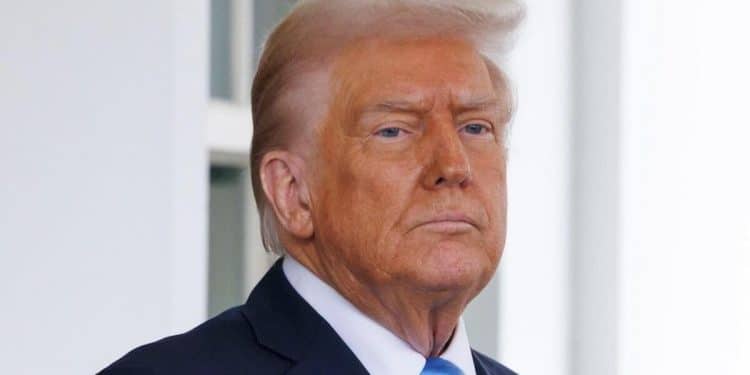In his first week as president, President Trump has fired over a dozen Inspectors General from departments such as the U.S. Small Business Administration and the U.S. Department of Health and Human Services and Veterans Affairs.
Eight of the inspectors general who were fired filed a lawsuit against the Trump administration on Wednesday. They claimed that their terminations had been “unlawful” and “unjustified.” The lawsuit names inspectors general from the Department of Defense as well as the Department of Agriculture, and the Department of Education.
In court documents filed with the Washington, D.C. district court, it is stated that inspectors general oversee and conduct more than $5 trillion in appropriated funds each year and over 3.5 million federal workers.
What exactly is the role of an Inspector General?
What is an Inspector General?
The Inspector General Act was passed by Congress on October 12, 1978. It established 12 Federal Offices of Inspector General, whose mission is to root out fraud and waste, and provide non-partisan advice at government agencies. More than 70 statutory inspectors are appointed by the president and agency heads.
These are non-partisan civil servants that serve under both Democratic and Republican administrations. The Office of Inspector General (OIG) is a federal agency that exists in most federal agencies, including the CIA and Department of Homeland Security, as well as other federal entities like Amtrak, Equal Employment Opportunity Commission, and Smithsonian Institution.
The Council of Inspectors General on Integrity and Efficiency (CIGIE), an independent executive branch entity tasked with increasing professionalism and improving the performance of OIGs maintains a list of all OIGs. This also includes a vacant office.
According to the Council of Inspectors General on Efficiency and Integrity, inspectors are required to conduct objective and independent audits, investigations, and inspections. Inspector General Act directs the inspectors to audit and investigate programmatic activities to ensure that funds are directed correctly and to foster efficiency.
The law does not allow inspectors general to be stopped from performing an audit or conducting an investigation, even though they are generally under the supervision of their agency. Inspectors report to their agency’s head and Congress. Allegations of misconduct made by their office will be referred to the Council of Inspectors General on Efficiency and Integrity.
Can an inspector general be fired and how is he appointed?
The president can appoint federal inspectors general, or the head of the agency. All inspectors general in Cabinet-level agencies and departments are nominated by the president, who then submits their nominations to the Senate for confirmation. This includes departments like the Department of Defense, Agriculture and Housing and Urban Development.
Inspectors General can be appointed by federal entities that are not Cabinet-level, like the Consumer Product Safety Commission (CPSC), National Endowment for the Arts, and United States Postal Service.
The Inspector General Act states that all Inspector Generals are appointed without regard for political affiliation, and solely on the basis of integrity and demonstrated abilities in accounting, auditing and financial analysis, as well as law, management, analysis and public administration.
In 2022, a federal law was passed that requires the president to inform Congress 30 days in advance of the removal of the inspector general. It also demands a “substantive justification, including case-specific and detailed reasons.”
A “first assistant” is also designated to replace an Inspector General in the event of a position vacancy. The president must communicate the reasons why he has not made a formal nomination for a vacant post after a specified period.
What is the role of an inspector general?
Inspectors General act as independent watchdogs in their organization.
After conducting investigations, they produce public reports about their assigned agencies. Paul Martin, former USAID Inspector General, published a report on the impact of Trump’s cuts at the agency. He found that nearly 500 million dollars in food aid were at risk of spoiling in the ports, ships, and warehouses.
He was terminated a day following the release of report.
In court documents, Michael Missal, the fired Inspector General of Veteran Affairs, said that he had investigated reports of mysterious death at a VA Medical Center in West Virginia. He identified a nursing aid who pleaded guilty later to multiple counts.
Larry Turner, Inspector General for the Department of Labor said in court documents, that as part of his supervision of the unemployment insurance program, he had identified approximately $191 billion of stolen funds from the pandemic funding Congress authorized for the Department.










